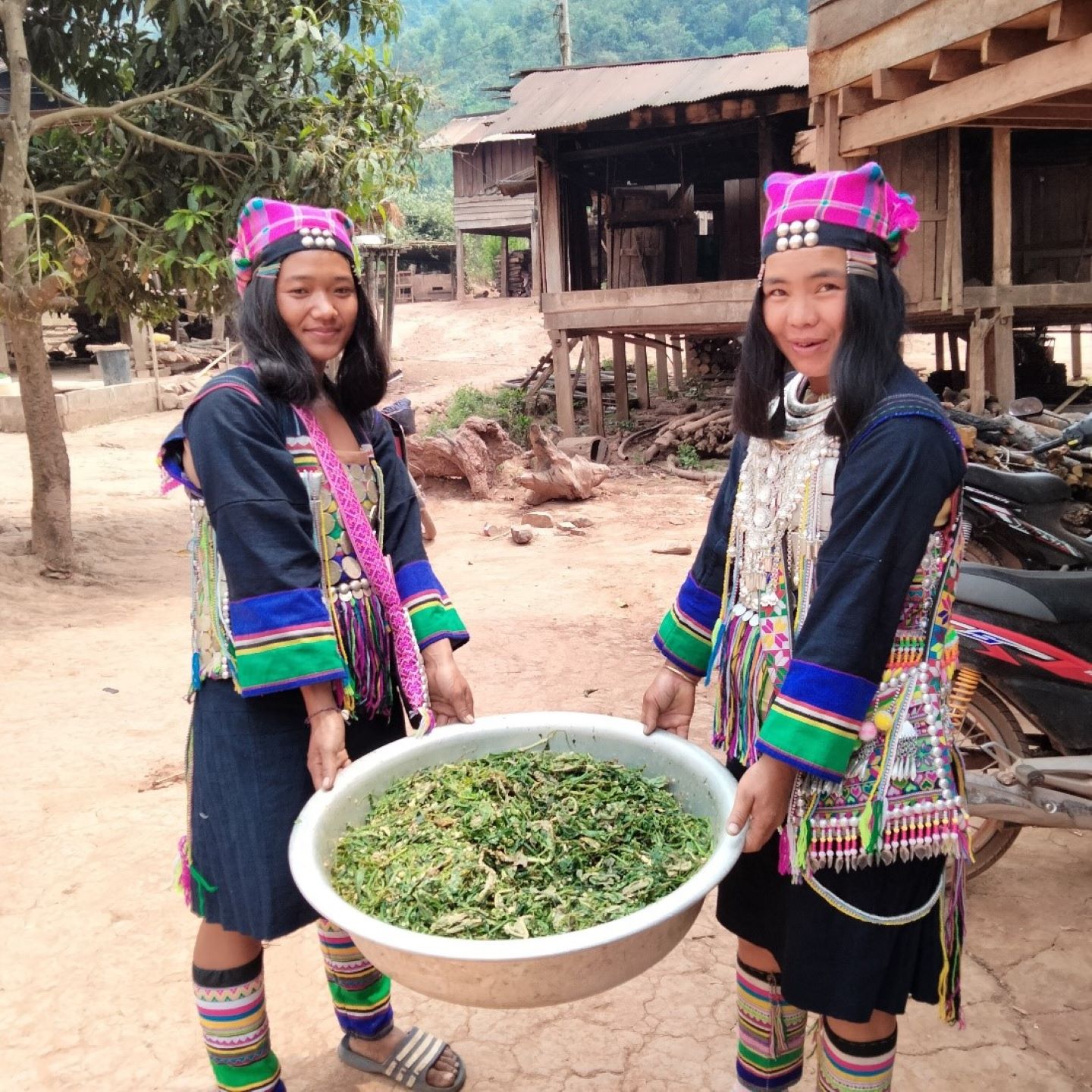A healthy diet for a healthy people in Laos
IFAD Asset Request Portlet
Asset Publisher
A healthy diet for a healthy people in Laos
Estimated reading time: 2 minutes
Dietary diversity is a big problem in some northern parts of the Lao People’s Democratic Republic. Many rural families regularly consume as few as four of the ten major food groups, with rice often forming much of the meal. Despite eating local, leafy vegetables themselves, mothers rarely feed these to their young children, leading to high levels of stunting as well as micronutrient deficiencies.
This is why the IFAD-funded Agriculture for Nutrition Programme (AFN) seeks to tackle malnutrition and rural poverty through education and agricultural training on diversifying produce and creating stronger market links.
The results speak for themselves. Between 2016 and 2022, AFN improved food security for more than 31,000 households, dietary diversity for almost 35,000 women and increased the incomes of 20,000 households by a third.
Training in nutrition
To address the fact that three in five children under five suffered from stunting, the AFN established the Farmer Nutrition School (FNS) and trained women in nutrition, family planning and agriculture.
Green Garden Grants were awarded to pregnant women after attending the FNS. With these grants they set up vegetable gardens, raised small animals to diversify their diet and sold the surplus to improve their income.
Like many households in northern Laos, Si Phut’s diet consisted primarily of rice. Then she became involved in the FNS and received a Green Garden Grant – her very first investment. Si Phut bought seven chickens, feed and seeds and set up a homestead garden. Her small chicken and egg business was so successful that she not only reinvested her earnings and purchased ducks but is also building a new home with her husband.
Si Phut now also has the nutritional know-how to change her family’s diet for the better.
“Before attending the FNS, I didn’t know it was important to consume vegetables and diversify our diet. I could end my day having eaten only rice,” says the young mother-of-one. “My son has grown strong and healthy, and he never gets sick.”
Learning from the past, looking to the future

In Lao Kou Mai Village, Mesa learnt the importance of diet diversification. “I attended cooking demonstrations and learnt how to recognise the signs of child malnutrition,” says the mother-of-two.
“Before AFN we were not washing our hands before eating and cooking, and we were not boiling water before drinking it,” says Mesa.
Given the project's success, a second phase was announced in 2022. The team is committed to improving the programme's outreach by targeting a more diverse group of women, developing climate-resilient infrastructure and adopting a gender-transformative approach across all project components.
Publication date: 24 October 2023